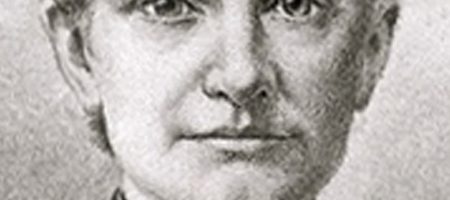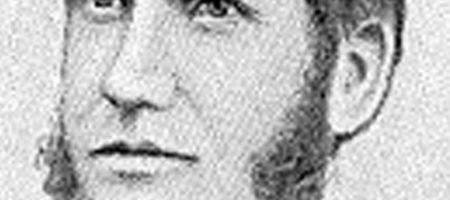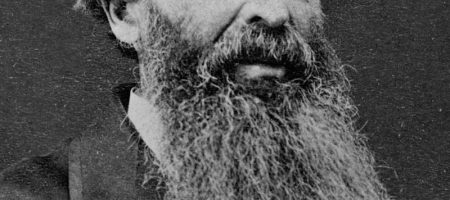Narcissa July 1847
WAIILATPU, OREGON TERRITORY.
July 4th, 1847.
My Dear Mother:
It was not convenient for me to write to any of my friends in the States, the past spring by the returning of immigrants except sister Jane. To her I wrote briefly, in answer to the one received in March by the hand of Mr. and Mrs. Thornton, who came from Quincy, Illinois. It was nearly a year in reaching me in consequence of Mr. and Mrs. Thornton taking the southern route with the majority of the immigrants. What would dear mother and father think if they knew how anxiously and eagerly I am expecting Jane and Edward to come with the immigrants this season. It is, indeed so. We are looking for them with deep solicitude, and hope and pray that we may not be disappointed. From what she wrote me last spring, I think she would have come with Mrs. Thornton, except for her mother; she desired very much to see her first. It was the same with her when Marcus was there. She could not come with him without seeing mother first. Although I think she might have been prevailed upon at that time to have come with him, if he could have seen a way to have brought her, when he was in Quincy. He learned afterwards that she might have come very safely and comfortably with one of the families that were coming at that time. I was greatly disappointed and felt almost inclined to reproach my husband for not making more effort to bring her. But it was all right; he did the best he could under existing circumstances. Since that time I have rather been waiting in hopes Edward would complete his course of study and be appointed by the Board to come and bring her with him.
From their letters it appears he has not been making that progress desirable, and in his last he intimated that he desired to come to this country and wished to know of us if we would encourage it. Accordingly, last spring a year, we wrote to them both and set before them every possible inducement to have them come immediately. Consequently we are looking for them and shall be not a little disappointed if they should not come. Perhaps my beloved parents would wish to know some of the reasons why, or the object for which we wish to have them here. I need not speak of the comfort and enjoyment their society would afford us here in this far-distant land. That is self-evident. In a temporal view, we feel that they would be better situated here than where they now are. As it regards their usefulness, perhaps no place could be found where they could do more for the advancement of the precious cause of our dear Redeemer, and with better success, than here, whether it be as missionaries to the Indians or as Christian teachers among the white population of this country. Good help of every kind is needed here in our missionary work, and if they were now here we could fill their hands (or the Lord could) and their hearts, too, with just as much missionary work as they could well do. If E. still desires to finish his preparation for the Gospel ministry, we would certainly do all in our power to facilitate him, and at the same time he could render himself useful in teaching a part of the time and be of great service to us. We have now in our family a young man of real worth (and he has been with us almost two years), who came to this country principally for the benefit of his health, thinking to return again after a season, but finding it improving he has for more than a year past been pursuing a course of reading and study with a view to the ministry. He had commenced studying before leaving home, but had been obliged to desist on account of his health. Since living with us, he has had his mind much drawn towards the subject of devoting his life for the benefit of the heathen, and last spring came to the determination of doing so; consequently, he is now pursuing the study of Nez Perces language in connection with his other studies. Thus the Lord has had compassion on us and inclined the heart of one dear youth to enter this field of missionary labour.
We have often asked for more associates of the Board, and they have met our solicitations with encouragement and many promises, and at one time had an individual appointed for this station; but he failed to meet his engagements and went over to the Presbyterian Board and was sent by them to some other part of the world. At present we have no encouragement that any will be sent very soon. There seems to be a great destitution of laborers at the present time, or of those who are qualified and willing to go forth to the missionary work. This mission is needing another missionary very much to occupy a new station just offered us by the superintendent of the Methodist Mission. It is the Waskopum station, situated at the Dalles, where I spent the winter while my husband was absent to the States. It is an interesting and very important station, particularly so with reference to its locality to this mission, as well as to the cause of civilization and Christianity in the country at large. Our mission have appointed Mr. Walker, of the Tshimakain station, to occupy it for the present, until some other one can be obtained.
Tuesday, July 15th-While engaged in writing the above, I was interrupted by the arrival of Mr. Hinman from the Willamette. He is the young man that taught our school the winter of 1844, of whom I wrote as becoming a Christian and uniting with our church. He has come up to try to obtain the use of the mission press for the purpose of printing another paper in the Willamette. He had now gone on to see the other members of the mission, and will probably visit both stations before he returns. He has given us much intelligence concerning the lower country. Five ships are now in the river from different parts of the world.
Christians of all denominations are trying to do something for the upbuilding of Christ’s kingdom in the land; but the enemies of the cross of Christ are doing must faster.
If I had time I might write much concerning the lower country that would be of interest, but for the present I desire to speak of our own prospects as a mission, which we feel were never brighter than at the present moment. Shortly after closing my letter to Sister Jane, I took a journey. Since that time I have been obliged to avoid journeying on horseback, on account of my health until the present season. I am happy to inform you that my health has so much improved that I endured the journey well, even much better than for three years previous to relinquishing the saddle altogether. For this I desire to be thankful. I was absent from home a little more than three weeks. Our meeting was an interesting one. Never probably since our existence at a mission has a meeting been characterized by so great a manifestation of the influence of the spirit of God upon each member, as at that time. All seemed to feel that we had come to an important crisis and that God alone could and must direct us. Our Board had written and advised to abandon the Tshimakain station in consequence of the discouragements under with our brethren of that station were laboring. Mr. Eells is advised to remove to this station, and Mr. Walker to go to Kamish, the station Mr. Smith formerly occupied. This advice, however, was accompanied with discretionary power. Soon after the arrival of Mr. Green’s letters, came the offer of the station at the Dalles. This all acknowledged to be an important acquisition; but who of our limited number should occupy it? After much deliberation and consultation, it was finally determined not to abandon altogether the station at Tshimakain, but that during the winter Mr. Eells with his family remove to this station to act as a minister in the English language for the benefit of our own families and those who may winter with us, and that during the summer his time be spent at Tshimakain, and in internerating among the Indians in that language. This arrangement is very much in consequence of the severity of the winter with them, it occupying so much of their time and strength in caring for themselves and their animals. Mr. Walker is recommended to occupy the station at the Dalles for the present, at least, or until it is thought best to make some other arrangements.




